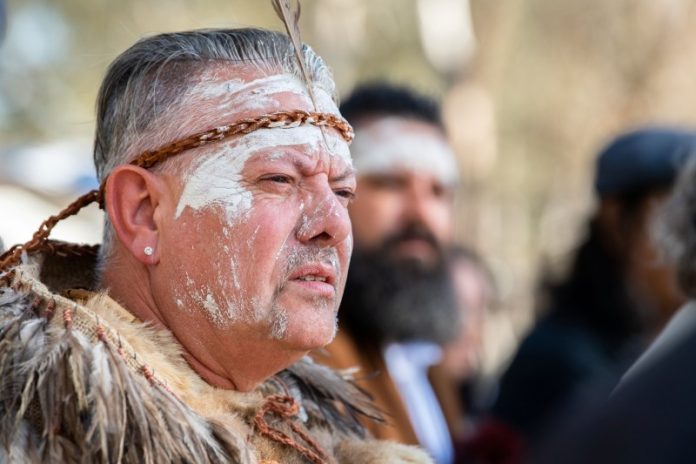The Dja Dja Wurrung People of central Victoria have become the first traditional owners to seek to negotiate a local treaty with the state government.
Under Victoria’s Treaty Negotiation Framework, traditional owner groups can negotiate their own treaties, which will reflect aspirations and priorities for their local areas.
DJAARA (the Dja Dja Wurrung Clans Aboriginal Corporation) started that process with a formal notification to the Treaty Authority – the independent body established to oversee negotiations for a statewide treaty and traditional owner treaties.
The move comes as Victoria continues to work towards establishing what would be Australia’s first statewide treaty with First Nations people.
Proud Dja Dja Wurrung man and DJAARA board director, Djaran Murray-Jackson, said local treaties would provide a mechanism for Aboriginal communities to use local knowledge to come up with practical solutions at a local level.
“Local treaty will be led by our mob and focus on the issues that are important here on Dja Dja Wurrung Country,” Mr Murray-Jackson said.
“Country, our connection to the land, is such an important part of who we are as Aboriginal people. So, there’s no doubt that initiatives around land and caring for Country, as articulated in our Dhelkunya Dja, Dja Dja Wurrung Country Plan, will be a focus for the negotiations.”
DJAARA, the organisation conducting the community’s preparations for treaty, has seen close-up the benefits that come from embracing traditional knowledge and practices and celebrating the area’s rich living culture.
The corporation and its enterprises, collectively known as the Dja Dja Wurrung Group, deliver a range of programs including land management services, cultural immersion programs and bush tucker initiatives. These have helped breathe fresh life into ancient wisdom and generated numerous jobs and economic benefits for the region in the process.
Dja Dja Wurrung Group CEO Rodney Carter said communities thrived when local people could call the shots about local decisions and when there was a sense of connection and understanding.
“In addition to the practical decision-making powers at a local level, we know our community also wants to build understanding and pride in our culture and language more widely,” Mr Carter said.
Mr Carter pointed to the façade artworks on and around Bendigo landmark buildings, such as the Law Courts and Galkangu – Bendigo GovHub, as well as upgrades to the jointly managed parks on Djandak (Dja Dja Wurrung Country), including around the Daylesford area.
Art, signage and language are some ways of providing everyone with a way to connect with and celebrate the oldest living culture in the world.
DJAARA will now take steps to form a delegation, which will be responsible for conducting negotiations. The state government will then be formally invited to commence negotiations. In the meantime, DJAARA will continue consulting with communities in the area to set the priorities to take into the treaty negotiations.
“We’ve got a lot of big conversations to have with our mob over the coming months to work out how we want to use local knowledge to deliver practical solutions for our community. This is an exciting time for everyone who calls Djandak home,” Mr Murray-Jackson said.








